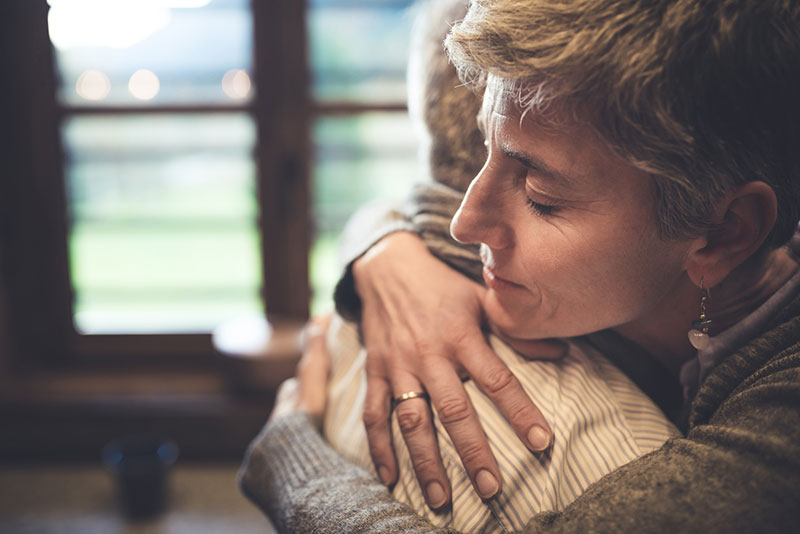
Many people don’t fully understand what to do when a senior dies, but these steps can help ensure you are able to handle funeral plans and beyond.
Do you know what to do when a senior dies? In the days and weeks following death, there are a number of personal and legal tasks that must be taken care of in a timely manner. Knowing what to do and where to begin can be challenging while also navigating grief.
Our senior care experts have developed the following practical guide so you will know specifically what needs to be taken care of when an individual you love dies.
First Steps: Immediately
- Obtain a declaration of death. Depending on the person’s location when he or she passed, this might be provided by a hospice nurse, or staff in a hospital or long-term care facility. If you’re taking care of the individual at home without having the support of healthcare providers, call 911. EMTs will provide transport to the emergency room for a legal pronouncement of death.
- Notify friends and family. There are several ways to accomplish this, based on what’s most preferable to you. You may want to personally reach out to each individual through a phone call, email, or face-to-face visit. You may want to ask for assistance, designating others to contact a certain group of people (i.e., faith community members, friends from organizations the person was involved in, neighbors, etc.) to help spread the word. Or you may choose to post on social media, enabling you to make one announcement that reaches everybody in the person’s group of contacts.
- Plan a meeting with immediate family members to discuss funeral arrangements. If the senior had prepaid/preplanned final arrangements, you can review those plans with immediate family. If not, you can start the conversation focusing on immediate priorities: which funeral home you’d like to use, the budget available, and any high-level particulars you want to make sure to incorporate.
Next Steps: Within a Couple Days of Passing Away
- Make funeral plans. Using the details from your initial family conference, meet with the funeral home staff to work through the details:
- Will the individual be buried or cremated?
- Which type of urn or tombstone might you want?
- Where will the funeral or memorial service take place?
- Who will write the obituary? Act as pallbearers? Speak at the service? Write thank-you notes? Plan for a post-funeral gathering?
- Ensure the property and any valuables are secure. Lock up any cash, jewelry, or other important possessions, as well as the person’s house and vehicle. Also, if the person had any pets, determine who will take over ownership – making sure they get plenty of attention and care, as they will be affected by the loss and changes too.
- Forward mail. The post office can set up a forwarding order so that the person’s mail will be redirected to the designated person handling their affairs. This individual will also need to keep track of mail to cancel subscriptions and services, manage any bills, etc.
Final Steps: A Couple Weeks After Passing
- Pull together documents. Ask for ten certified copies of the death certificate, which will be needed to file insurance claims, close bank accounts, and more. The funeral home can help you with this, or you can request them yourself through the state vital records office. You’ll also need to locate the person’s will and determine who the executor is.
- Speak to an attorney and CPA. An attorney, chosen by the executor, will ease the job of settling the estate and distributing possessions. A CPA can assist with filing a final tax return on the person’s behalf.
- Alert other agencies. The funeral home should get in touch with the Social Security Administration, but you’ll want to verify this. Additionally, if the person had a life insurance policy, this is the time to file a claim. Talk to the person’s bank(s), stockbrokers, and financial advisers to determine the beneficiary of the accounts and provide a copy of the death certificate. You’ll also need to close any credit card accounts and contact the Department of Motor Vehicles to cancel their driver’s license.
When an older loved one dies, there is often a surviving spouse who needs support and care. At-Home Care Company, a leader in elder care in Des Moines, IA and the surrounding communities, is here to help. Our compassionate care team offers friendly companionship to reduce loneliness, assistance with personal care needs, help planning and preparing nutritious meals, and much more. Let us help so that you can focus on the many end-of-life details that need to be addressed following the passing of a loved one. Call us today at 515-292-2650 to discover more about our in-home care services.
